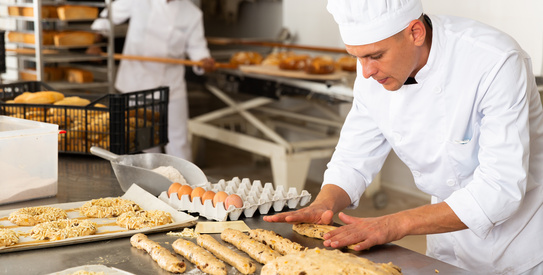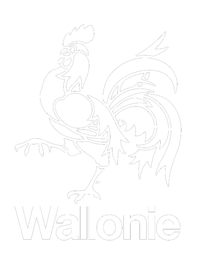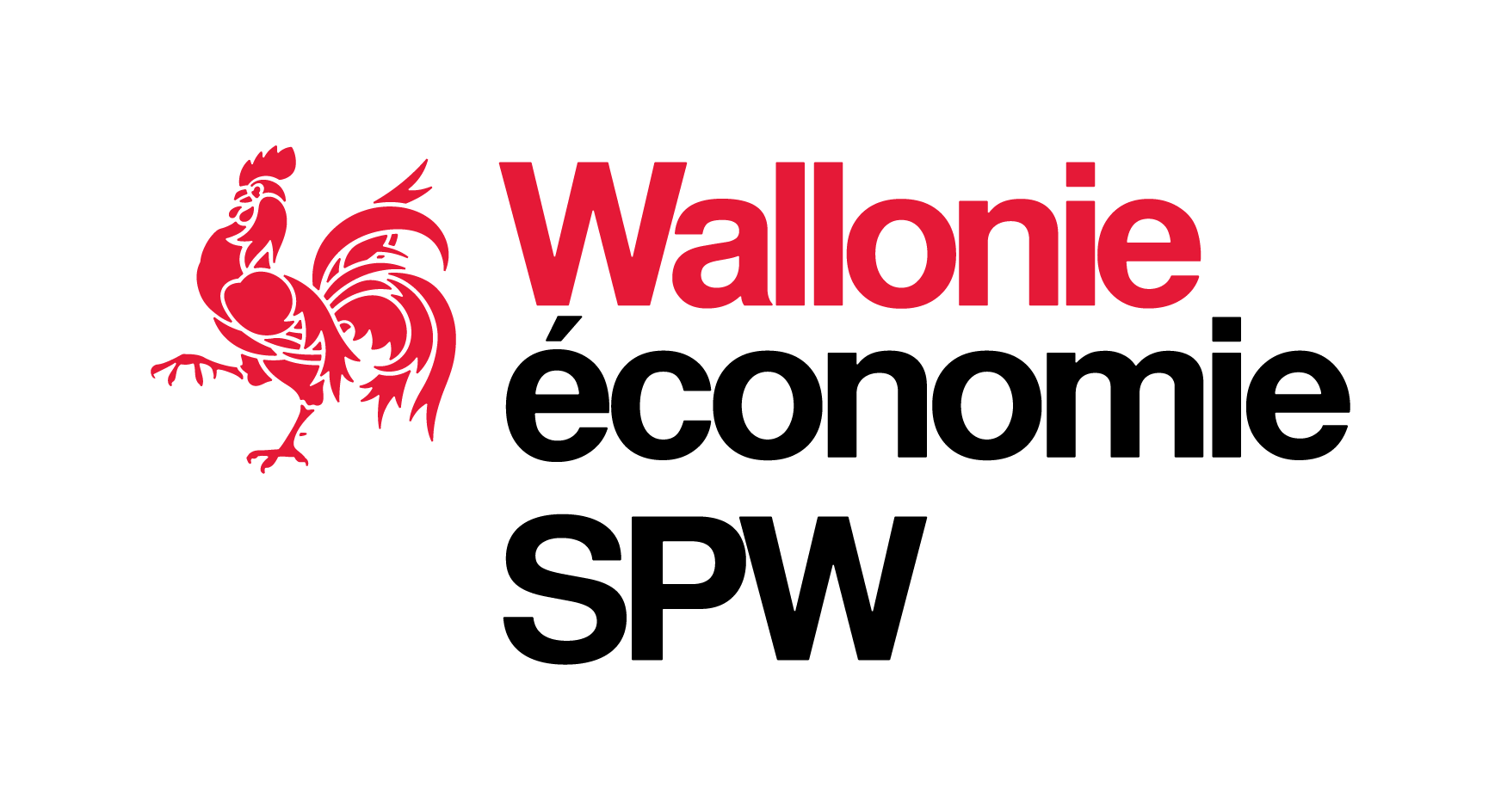Access to the bakery and pastry profession
Are you thinking of opening a bakery? Would you like to prepare and sell pastries? Or are you planning to add any of these services to your existing business? In this case, you need to prove that you have the skills to start up such a business. If you don't have a diploma or experience in this field, you can obtain a certificate by sitting the central jury exam.

Which activities require professional skills as a baker or pastry chef?
By definition, this includes making the following products:
- Bread products;
- Bakery products;
- Pastry products, such as:
- Choux pastry and puff pastry products;
- Meringues;
- Various fat-based pastries;
- Biscuits and cakes;
- Petits fours;
- Tarts and tartlets;
- or gâteaux.
If in doubt, contact a Business Counter. They can advise you on your personal situation.
How can I prove my skills?
Skills can be proven in two ways:
- With an educational or training diploma;
- With 5 years' uninterrupted professional experience over the past 10 years.
If you don't have either, you can obtain a certificate by sitting the exam for professional skills as a baker or pastry chef (20043) before the Central Jury.
Frequently asked questions about access to the profession
How do I know if my diploma grants me access to a profession?
A database of diplomas, degrees and certificates from all over the world helps you determine whether your qualifications meet entrepreneurial requirements. You can look up your diploma to find out which activities it gives you access to. If in doubt, contact a business counter. The Central Jury Service is not able to validate your qualifications.
Other than the company manager, who else can bring entrepreneurial skills to the business?
For a self-employed person (natural person), this person can be:
- A spouse;
- A legal cohabitant;
- A partner who has been cohabiting with the individual for at least 6 months;
- A self-employed assistant, parent or relative up to the third degree;
- An employee with a permanent employment contract.
For a business (legal entity), this person can be:
- The management body (e.g.: a manager of a limited liability company or a managing director of a public limited company);
- A company director (e.g.: an active partner in a limited liability company or a director of a public limited company);
- An employee with a permanent employment contract.
If in doubt, contact a Business Counter. They'll be able to tell you if you have the required skills for your activity.
What skills are tested on the exam? What content does the exam cover?
Raw materials
- In-depth knowledge and appreciation of basic raw materials (e.g. flour, yeast, eggs, milk, fats, etc.), supplementary raw materials (e.g. additives permitted in bread and other bakery products) and the main finished and semi-finished products (e.g. biscuit mix, cake mix, fondant, marzipan, etc.).
- Definition, study and comparisons of: quality, their role in production, ease of work, purchase and use price, yield and cost price of products to be made; storage methods.
Professional equipment
- Rational equipment and layout of storage, work and retail premises;
- Justification of the choice and purchase of ovens and refrigeration equipment, furniture and tools according to the business' desired productivity;
- Keeping an "equipment" file;
- Means of obtaining the desired air temperature and humidity level in these premises;
- Ways to save energy.
Theory and techniques
- Basic recipes and manufacturing processes for the production of various bakery and patisserie products;
- Knowledge of the different ways of making pastry: alcoholic fermentation, physical and chemical development;
- Study and possible modification of basic recipes with a view to: compensating for shortages of certain materials, improving quality, achieving desired productivity and profitability, detecting defects and correcting certain errors during production, assessing recipes and working methods in relation to the finished products obtained; being able to use freezing processes;
- Use and development of new techniques: estimation, volume and production;
- The importance of natural and artisanal products;
- Sketches of decoration motifs and decorating products;
- Ability to stimulate the creation of new items and ensure the range is constantly renewed.
Specific professional legislation
- Legislation relating to:
- The display of sales prices;
- Perforation of weighing instruments;
- Transport of bakery and pastry products;
- Specialist risk insurance;
- Raw materials;
- Installation conditions and layout of the various business premises;
- Tools;
- The composition, manufacture and sale of various bakery and pastry products, ice cream, edible ices and chocolate products.
- Economic and tax legislation specific to the profession;
- Social legislation applicable to the bakery and pastry industry;
- The main collective labour agreements and other decisions of the relevant Joint Sub-committees;
- Classification of worker categories: kneader, baker, bench hands, delivery driver, van seller, apprentice, labourer, maintenance and cleaning staff.
Hygiene and occupational safety
- Special hygiene measures applicable to the bakery and pastry industry: cleanliness of the person and their clothing;
- Adequate lighting and ventilation of the premises;
- Precautions against various occupational diseases;
- Precautions when carrying out parasite, insect and rodent control;
- Legal provisions governing hygiene;
- Special safety provisions applicable to the bakery and pastry industry: legal requirements concerning accident prevention in the workplace, safety measures relating to the use of machinery.
How does the exam work?
The exam consists of a written questionnaire and an oral section before a jury.
Any questions? Any problems?
info.jurycentral.dgo6@spw.wallonie.be
Office hours:
Monday: 2 – 4pm
Tuesday: 2 – 4pm
Wednesday: 9am – 12pm
Friday: 9am – 12pm081/33.40.00
Our offices are located at:
Boulevard Cauchy 43
5000 NAMUR
Are you looking for other solutions for your project?

Receive personalised advice and quickly find the answers to your questions. Find the help you need on 1890.be.
Discover other solutionsOther state aid

Innovation, training, exports, consultancy... Take a look at all the state aid available to Walloon companies.
To the Midas database